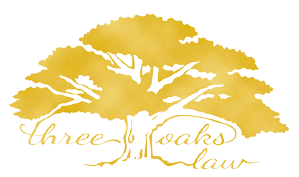Things Change – So Should Your Estate Plan
Major life events. They are inevitable – a fact of life. At times they bring joy and excitement. Other times we are left saddened by the broken pieces of a marriage or a family broken due to the tragic loss of a loved one.
Whether joyous or saddening, the following three categories of major life events have two things in common. First, they create an opportunity to reflect and second, they create the need to review or establish an estate plan. This month, I’m sharing estate planning considerations at the time of major life events.
Marriage
Marriage is quite possibly one of the biggest moves we make as adults. We come together in marriage on a cloud with feelings of love and bliss. However, practical considerations, while not fun, are so important at this special time.
Let’s consider a new couple that already have children (the blended family). Estate planning is essential for this family. Through planning each spouse can protect their children’s interests and prevent a surviving spouse from cutting stepchildren out of an inheritance.
Another consideration is the family property or heirloom passed down over generations. Who should inherit it? The most likely answer is that it should stay with the original family; however, this must be clearly documented. Otherwise one’s family could lose the property by virtue of Florida probate law.
A New Baby
Nothing compares to the excitement (and lack of sleep) that comes with a new baby. However, these two extremes are met with an important responsibility that is often forgotten – estate planning. While I understand that many of us young parents are just getting into our careers and thinking “I don’t have an estate.” We need to move past the Downton Abbey definition and consider the meaning of “estate” today. Today, an estate is considered everything we own or are responsible for. While we may not have a traditional estate, estate planning goes beyond financial wealth and encompasses preserving choices, protecting family, removing the guessing game and achieving peace of mind. One way of achieving this is by appointing guardians for minor or special needs children in the event of our incapacity or death. This is done through advance directives as well as wills and trusts.
A Change in Family Dynamics
Family dynamics change – children grow up, leave for college and start their own families. Divorces happen. Parents age and often need additional support. While each of these changes have a financial, emotional and physical dynamic, they also create the need for an updated or new estate plan.
For example, as our children become adults, they need basic estate planning documents such as a living will and designation of health care surrogate. Parents are not always in the legal position to make decisions for an incapacitated child without such documents. Divorce and parental disagreements can make these situations more difficult because physicians won’t know who to defer to. As such, naming a health care surrogate is important, even for younger adults.
Another example is related to post-divorce estate planning. A few years ago, I met a young man whose father died. He wanted to serve as the personal representative of his father’s estate. However, his father appointed his wife’s brother during their marriage and never updated his will after divorcing in 2003. Although the decedent and ex-brother-in-law were estranged, he had the legal right to serve as personal representative.
Another example is related to aging parents. Oftentimes aging parents move in with their children and sell their homestead. This may not be a good idea if they have creditors or want to qualify for Medicaid when they need skilled long-term care. Consulting your estate planning attorney is essential to preserve assets and one’s legacy.
For more information or to schedule a consultation, please contact us today.
